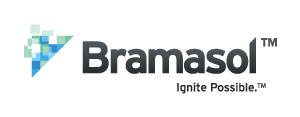In previous blog posts, we have addressed the challenges and opportunities regarding digital transformation and the Digital Solutions Economy (DSE) across a range of industries including, software & SaaS, semiconductors, media & entertainment, medical devices, transportation, electronics manufacturing, energy, and utilities.
In this post, we shift gears to provide insights into the Professional Services arena, where Bramasol not only serves clients but we also participate as a leading services provider for SAP solutions. Based on this experience, the following sections offer a look at six key factors for building and managing a successful expert professional services company.

1. Choose a Specialty Area with Clear Added Value
The first critical step for any successful professional services firm is to clearly define your area of expertise. If you attempt to be "everything to everyone" the end result is usually a situation where your audience can't get a handle on who you are and why they should care.
For example, at Bramasol we made a decision over a decade ago to focus on SAP finance solutions for the office of the CFO, with a specific emphasis on the new revenue recognition compliance requirements in ASC 606 and IFRS 15. As an early co-innovator with SAP, the Bramasol team helped with the launch and ramp-up of SAP Revenue Accounting and Reporting (RAR) as the first comprehensive solution for implementing the new standards.
Subsequently, tracking with the rise of subscription-based DSE offerings, we expanded this focus to address complementary specialization in SAP Quote-to-Cash solutions. By building on specialization in combining both SAP QTC and RAR, Bramasol now offers a unique approach for integrating both frontend customer-facing processes and backend compliance processes within a unified approach that can adapt and scale to virtually any requirements.
2. Build a Team with Focused Expertise and Experience
In a professional services firm, the core value proposition resides in the knowledge and skills of your customer-facing consulting staff. This requires building a team of senior consultants with years of hands-on experience in front-line conceptualization-to-implementation.
For example, Bramasol's SAP-certified experts have participated in the majority of early product ramp-ups using SAP RAR, have worked on more SAP RevRec projects than any other company and, in the process, have developed best practices and targeted IP for compliance issues such as disclosures and reporting.
It's also vital to provide on-going training resources and professional certification support to keep team members abreast of all new product developments and specific industry trends in their particular area of expertise.
With your consultant team being the greatest asset for any professional services firm, it is critical to build a company culture that nurtures and rewards excellence and backs up that commitment by providing the training, compensation, and growth opportunities that drive high retention, loyalty and incentives to innovate.
3. Listen First and Meet Clients Where They Are
No matter how much expertise your team accumulates, it is also very important to remember that every client situation is unique and therefore requires the ability to adapt your best practices, IP and technology solutions to their specific needs.
Listening first and always meeting your clients where they are in their technology journey is not only a key to successful projects; it also is an important element in fostering organic knowledge growth for your team and constantly refreshing your professional services company expertise.
4. Don 't Be Afraid to Say "No" to Projects that Don't Fit Your Target Zone
An important corollary to the focusing and listening steps is to be disciplined and avoid unconscious deviation from your core value propositions. Saying "yes" to opportunities that lie completely outside of your target zone can be a recipe for project problems down the line such as frustration for your teams and dissatisfaction for the customers.
Sometimes this can be a difficult area to navigate because of the complex interrelated nature for today's business processes, which means many potential add-ons to your core projects may be appropriate and complementary in nature.
For example, at Bramasol our focus on SAP RAR, Quote-to-Cash, and Billing and Revenue Innovation Management (BRIM) often involves closely related issues such as lease accounting, cash management, analytics, and of course looking ahead to the client's S/4HANA roadmap. (For more on alternative approaches, read the next section.)
5. Be Flexible on Collaborative Partnering If It's Best for the Client
With almost three decades as a leading SAP Partner, Bramasol has developed a philosophy of collaboration grounded in a willingness to tailor the engagement process to address each customer's overall business objectives with holistic solutions.
In many cases, where Bramasol is the lead partner on RevRec or QTC projects, we may also bring in specialists for areas such as alternative payment methods, data validation, hyperscale deployments, etc. to augment the overall project.
In other situations, delivering holistic solutions requires a multi-partner collaborative approach. For example, sometimes we are brought into projects by one of the large accounting firms to provide specialized revenue recognition, quote-to-cash, and/or BRIM capabilities while the accounting firm still retains overall responsibility.
The ultimate goal is to bring together the best available skill sets to meet the customer's business goals, while assuring a project structure with well-defined leadership, specific roles and coordinated implementation processes.
6. Consolidate Management of Revenue, Costs and Staff Utilization
The sixth key issue for optimizing professional services focuses on internal management issues regarding revenue, costs and staff utilization. Achieving sustainable growth, profitability, and overall business success depends on deploying tools that can seamlessly mesh revenues and costs in a timely manner while leveraging shared data and automation.
In this arena, Bramasol has seen excellent success with professional services clients by using the capabilities of Event-Based Revenue Recognition (EBRR) that are part of the SAP RAR in the Public Cloud. EBRR supports real-time reporting by enabling a single source document to trigger creation of two separate journal entries in the general ledger for matching revenue and costs. With both revenue and cost data fully integrated within the Universal Journal, there is no need for juggling separate data sources.
Summary
With staffing being the key asset and staffing costs the largest single expense category for virtually all professional services companies, the primary key to success is closely aligning your hiring, training and retention processes to put the best qualified people on the front lines of your client projects. In order to achieve this goal, you must first have a clear picture of your target zone and value-added objectives.
Finally, to carry your company vision forward with sustainable growth and profitability, it is critical to maintain consistent discipline regarding the projects you pursue, the partners you collaborative with, and the tools you use to measure and manage revenue and costs.For More Information, Check Out These Resources:
- If you are interested in joining the Bramasol team, visit our Careers page
- Using Specialists for Revenue Recognition and Quote-to-Cash
- Integrating RevRec and Cost Accounting in the SAP Public Cloud
- Rev Rec Re-Imagined Broadcast
- SAP S/4HANA Cloud Revenue and Cost Accounting: ARM
- Re-imagining Revenue Recognition: Unleashing Innovative Business Models

